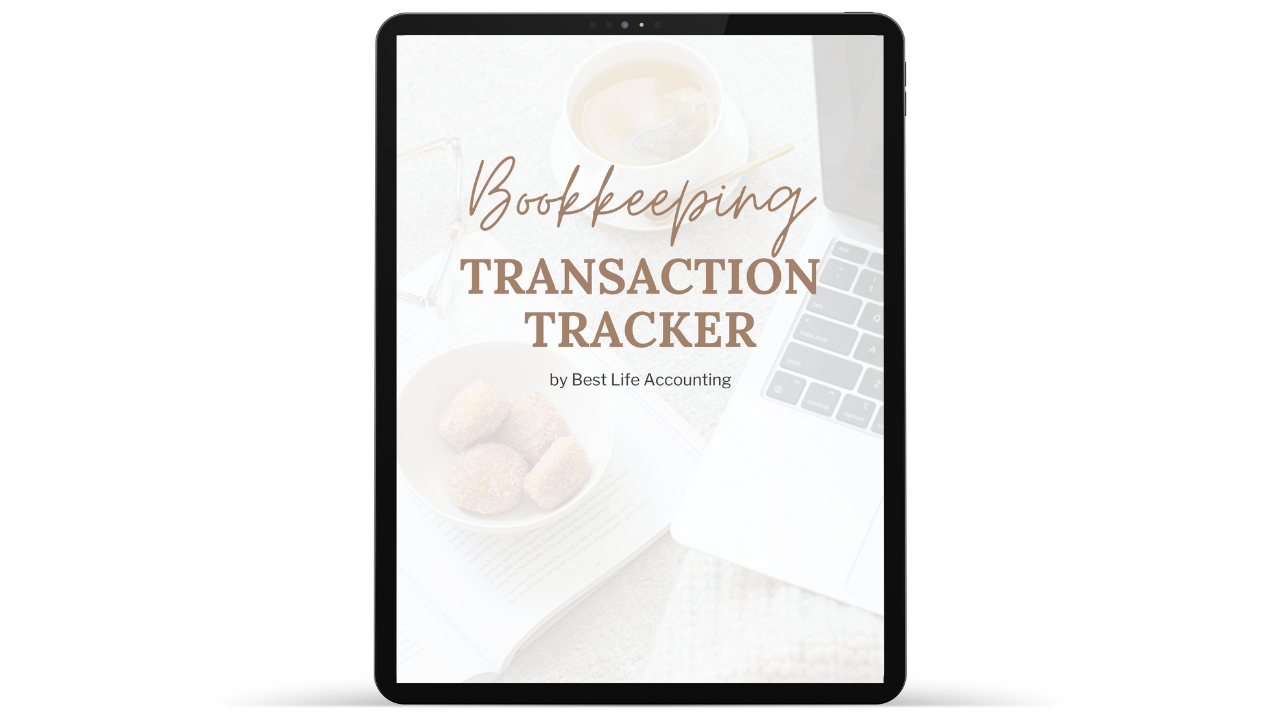Estimated Taxes

This post may contain affiliate links, which means I’ll receive a commission if you purchase through my link, at no extra cost to you. Please read the full disclosure here.
This blog post is written for businesses in the US about federal estimated taxes paid to the IRS. Click here and here to read about this information directly from the IRS.
What are Estimated Taxes?
Estimated taxes are used to pay tax on income that is not subject to withholding. This can apply to many different types of income, but this blog post will discuss estimated taxes for small business owners, freelancers, and independent contractors (all referred to as business owners for simplicity's sake).
As a business owner, you typically do not have federal taxes withheld from your paycheck (as you would if you worked as a W-2 employee) and so you may have to pay estimated taxes throughout the year to the IRS.
Who Should Pay Estimated Taxes?
If you are a self-employed individual (freelancer, independent contractor, sole proprietor, owner of an LLC, partnership, or S-Corp) and you expect to owe tax of $1,000 or more, you should probably be paying estimated taxes.
However, if you are also a W-2 employee, you can avoid paying estimated taxes if you increase the federal withholding from your W-2 paychecks to cover the amount you would be paying in estimated taxes.
Also, you don’t have to pay estimated tax for the current year if you meet all three of the following conditions.
- You had no tax liability for the prior year
- You were a U.S. citizen or resident alien for the whole year
- Your prior tax year covered a 12-month period
You had no tax liability for the prior year if your total tax was zero or you didn’t have to file an income tax return.
How to Pay Estimated Taxes?
Estimated taxes are paid using Form 1040-ES and can paid via mail or online.
Form 1040-ES has instructions for paying via mail and online. If you’re paying online, head to the IRS payments webpage to learn more.
How to Calculate Estimated Taxes?
Calculating how much to pay for estimated taxes should be done by your tax preparer. Depending on the situation, tax preparers typically calculate your estimated tax payments based on your previous year tax return or they calculate based on the quarter for which you are paying.
If they are calculating based on your previous year tax return, when they provide you with a copy of your filed 2023 tax return, they will provide you with a list of estimated tax payments that you need to make in 2024. That list will show the amount that you should pay for each quarter for the upcoming year.
If they are calculating based on the quarter for which you are paying, they will request your current period bookkeeping reports so that they can calculate how much you should pay on the upcoming due date. For example, they will request your Q1 bookkeeping reports to calculate what you should pay on the first estimated tax deadline of April 15th.
I typically advise my clients to save between 20-30% of their Net Profit for estimated taxes but always recommend they consult with their tax preparer before paying. That 20-30% is a suggestion for savings and is not a calculation of how much they should be paying in.
Trust Me on This - Hire a Tax Preparer
Why is it so important to have a tax preparer calculate your estimated taxes rather than a bookkeeper or calculating it yourself?
Taxes for most small businesses are paid on the individual level. Single-Member LLCs and Sole Proprietors file taxes on a Form 1040 Schedule C, which is a part of the individual return. And Partnerships, S-Corps, Multi-Member LLCs are flow-through entities which means the tax is paid on the individual level, not the business level.
Since estimated taxes are paid on the individual level, there is a lot more to be considered than just the business net profit. Including but not limited to: your spouse’s income and/or federal withholding, your personal investment income, your personal capital gains, etc.
Estimated tax payments consider a much bigger picture than just your business net profit and it’s important to hire a professional to advise you appropriately on the matter.
Taxes are not something that small business owners should try to figure out on their own - make the investment in yourself, your business, and your mental health and hire a competent, qualified tax preparer.
When are Estimated Taxes Due?
Estimated taxes are often referred to as Quarterly Estimated Tax Payments. However, they do not follow the typical quarters based on the calendar that we are used to. For example, if they followed true calendar quarters, you would expect them to be due on April 15th, July 15th, October 15th, and January 15th, But that is not the case. As with almost everything involving the IRS, it has to be a little confusing 🙃 - thanks, IRS!
Estimated tax payments are due to the IRS on April 15th, June 15th, September 15th, and January 15th for taxpayers following the calendar year (which means your tax year ends on 12/31). Here's the link to the schedule on the IRS website.
These odd dates can get super confusing but if you create a recurring calendar event for these dates, it can help you keep track of when to pay! Also, I remind my email list when it’s time for estimated taxes. So, join my email list and you'll get reminders sent straight to your inbox!
A Note on the ✨Feelings✨ Surrounding Estimated Taxes
When you have to pay the IRS out of your own bank account for taxes, it tends to hurt a little. That’s totally normal - but try to remember that you’d be paying the taxes regardless!
If you were a W-2 employee, funds would be withheld from your paycheck by your employer before you receive the paycheck, and so you would rarely realize it was happening. It’s just a lot more obvious to you now that you have to cut the check yourself.
Also, having to pay estimated taxes means you are making a profit in your business. Which is a good thing! And should be celebrated!
So, next time you have to pay estimated taxes and are bummed about that direct payment the IRS, just remember:
- If you worked a 9-5 you’d have to pay these anyway. It just wouldn’t be so obvious to you or your bank account.
- Paying taxes means you are making money in your business and you can be proud of that.
You Need Accurate Books to Calculate Estimated Taxes
Estimated taxes are one of the more confusing things for new business owners to wrap their heads around. But once you understand why estimated taxes are necessary (goodbye 9-5 job = goodbye federal withholding), it does make sense why us small business owners need to pay our share throughout the year.
Now that you have an understanding of estimated taxes & why it's important to hire a tax preparer to calculate your estimated taxes, ask yourself if you have up-to-date, clean, and accurate bookkeeping reports to send to your tax preparer so they can make that calculation. If not, let's chat! Book a free discovery call today to learn more about done-for-you monthly bookkeeping services.
If you are DIYing your books, check out my program, Clear Profits. Clear Profits is a DIY bookkeeping course + digital product bundle for the business owner who isn't ready to hire a bookkeeper yet.
Inside the program, I discuss saving for estimated taxes in more depth + tons of other topics that you need to know when doing your own books. If you're going to do your own books, ensure you are informed. Apply today!









